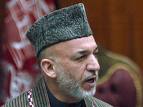Wednesday
Apr142010
Iran's Nukes: Can Tehran and the US Make A Deal?
 Wednesday, April 14, 2010 at 12:09
Wednesday, April 14, 2010 at 12:09  Julien Mercille, writing in Asia Times Online, assessed whether a Washington-Tehran settlement on enriched uranium for Iran's medical research reactor could defuse tensions over the nuclear issue:
Julien Mercille, writing in Asia Times Online, assessed whether a Washington-Tehran settlement on enriched uranium for Iran's medical research reactor could defuse tensions over the nuclear issue:The latest chapter in the Iranian nuclear crisis revolves around a possible "nuclear fuel swap" through which Iran would send most of its low-enriched uranium stocks (LEU at 3.5%) abroad, possibly to Russia and France, which would further enrich it (making it LEU at 19.5%) and then turn it into fuel rods. The fuel rods would be sent to Iran, which could use them in the Tehran Research Reactor (TRR) to produce much needed medical isotopes. The problem for Iran at the moment is that the TRR was last refueled in 1993 by Argentina, but it will soon run out of fuel (perhaps in a few months).
The Latest from Iran (14 April): Ahmadinejad’s Struggle
The swap deal could be a win-win for both Iran and the West. The West should be pleased by the removal of a good portion of enriched uranium from Iranian soil since this will reduce the possibility that Tehran could decide to use it to make nuclear weapons (nuclear weapons require highly enriched uranium, HEU at 90%). For Iran, fuel for its TRR would allow it to keep producing important isotopes used in the medical field and on which hundreds of thousands of Iranian cancer patients rely.
However, there has been some confusion among experts on whether Iran is currently producing its own medical isotopes, or is it only importing them from other countries? It is important to clarify this issue since the ways in which the latest crisis can be resolved depend in part on what exactly Iran is doing.
Flynt and Hillary Leverett, well known analysts of Iran, wrote recently that Iran was not producing any medical isotopes domestically and that it imported all of its requirements. So did Geoffrey Forden writing at Jeffrey Lewis' blog. But others say that Iran is now producing isotopes, although they don't give many details.
When asked about the issue an International Atomic Energy Agency (IAEA) representative said the agency is not commenting ''at this time".
So what's the situation?
Ali Asghar Soltanieh, Iran's ambassador to the IAEA, was asked about Iran's activities in the field of medical isotopes production and his statements cross-checked by reviewing a March 2010 article by Iranian scientists from the Atomic Energy Organization of Iran in the journal Nuclear Technology, published in the United States by the American Nuclear Society [1]. The two accounts appear to match, and are as follows.
Iran now produces two important medical isotopes with the TRR: technetium-99 and iodine-131. Since recent media stories have emphasized production of technetium-99, this is worthy of focus.
Technetium-99 is obtained from molybdenum-99 (Mo-99), perhaps the most important medical isotope in the world. Four countries - Canada, Belgium, South Africa and the Netherlands - meet 95% of the world's Mo-99 demand, using highly enriched uranium (HEU at 90%) to produce it.
Up until 2007, Iran bought its Mo-99 on the world market, but it has now developed a way to produce it domestically, through irradiating Mo-98 in the TRR. This leads to the production of Mo-99, which is then used to produce technetium-99. Apparently Iran does not currently import Mo-99.
As an aside, Iran is also producing other medical isotopes, notably isotopes of thallium and gallium, at its cyclotron facility near Tehran. This production process does not involve uranium, however, so it is not part of the current nuclear "crisis" with the West.
The problem today is that Iran's TRR is running out of fuel (which is made of LEU at 19.5%) and the production of isotopes is therefore at risk. The way to solve this problem is at the origin of the current crisis.
Several solutions are possible for Iran:
1. Buy the fuel for the TRR on the world market.
2. Receive fuel in exchange for most of its LEU stocks (this is the swap deal).
3. Enrich its own LEU to 19.5% (currently it is only enriching at 3.5%) and produce the TRR fuel domestically.
4. Stop producing its own isotopes and buy them on the world market (it would therefore not need fuel for the TRR to produce isotopes).
Any one of those solutions, if implemented, would provide Iran with medical isotopes and ensure its patients receive appropriate care, and therefore, solve the crisis. But they all have some problems, either real, or related to international politics:
1. Buying fuel on the market: Iran has actually said this would be its preferred solution, since it would allow it to keep its own LEU, rather than exchanging it for the fuel under a swap deal. As a member of the NPT (nuclear Non-Proliferation Treaty), Iran does have the right to purchase the fuel on the open market. However, as Scott Ritter has noted, "The United States and Europe have held any such sale hostage to Iran's agreeing to suspend its indigenous uranium enrichment program." Since Iran also has the right to enrich uranium according to the NPT, the obstacle here appears to lie in Western capitals, and this explains why they have preferred a swap deal in which Iran would give up its stocks of LEU.
2. Swap deal: From Iran's perspective, one problem here is that by sending most of its LEU stocks to Russia and France, Tehran runs the risk of never receiving the fuel, or, at least, this would give Russia and the West an important bargaining chip in future negotiations. One can easily conceive how the West, in possession of Iran's stocks, could lay out conditions for Iran to receive the fuel, such as asking for a full suspension of uranium in Iran.
There are historical reasons for Tehran to be worried: in the 1970s, under the US-allied Shah, Iran invested more than $1 billion in Eurodif, a consortium enriching uranium in France. This was supposed to give Iran the right to obtain part of the fuel produced by the consortium. However, the 1979 Iranian Revolution led France to renege, and Paris has since then refused to deliver Iran's share of the fuel or to reimburse it with interest. The fact that nuclear hardliner Nicolas Sarkozy is now in power only adds to Iran's fears that France could break the deal.
Partly because of such concerns, Tehran proposed that the swap should take place on Iranian soil and the LEU would leave Iran only when the fuel was delivered. As Siddharth Varadarajan put it, this would look something like this:
At a certain date, when French fabrication of the TRR fuel starts, the IAEA could take into its custody an equivalent amount of Iranian LEU and hold it, in escrow, inside Iran. When the TRR fuel is ready, the Iranian LEU could be loaded onto a plane, which would take off once the French fuel lands inside Iran. At the end of the day, the outcome for the US from a simultaneous swap would be the same as from a sequential swap: Iranian LEU stocks would have been depleted.
But US President Barack Obama, instead of jumping on the opportunity to close the deal, said he was disappointed with Iran, and called for sanctions - for a change.
3. Iran enriches LEU at 19.5%: In February 2010, Iran announced that it would enrich its own uranium up to 19.5% in order to make the fuel rods itself. One question mark here is whether Iran has the technical expertise for doing so. It could always reconfigure its centrifuges to produce 19.5% instead of 3.5% uranium, but Tehran has never before attempted to produce fuel rods out of enriched uranium.
Another potential problem is that Iran's enrichment process is plagued by the fact that its domestic uranium is contaminated with molybdenum and this makes enrichment more difficult (the molybdenum here is a separate issue from the medical isotopes of molybdenum). Further, the prospect of Iran enriching its uranium to an even higher level does not please the West.
4. Importing isotopes: Iran's announcement that it would attempt to reach the near 20% enrichment level led US officials to accuse Tehran of threatening the lives of its patients, since, if Iran was more reasonable, it would simply buy the isotopes on the world market and that would settle the crisis. For instance, Glyn Davies, the US ambassador to the IAEA, asked: "Why is Tehran gambling with the health and lives of 850,000 Iranian cancer patients in pursuit of ever more dangerous nuclear technology," a move he said was "callous and chilling".
Davies said that "to address the humanitarian needs of Iran's people, we are prepared to facilitate Iran's procurement of medical isotopes from third-country sources", maintaining that the American proposal was a "faster, cheaper, and more responsible alternative than enriching to 20%".
But one problem with importing isotopes is that world supply in the future may not be as reliable as it once was; and even if it remains reliable, Iran could still prefer to be self-sufficient and produce its own isotopes. Is the US right to say that it would be more responsible not to enrich uranium to 20%? One could certainly argue the case - but there is a stronger argument that it would be more responsible for states that have nuclear weapons to eliminate them, their obligation under the NPT, and convince Israel to eliminate its own nukes and join the NPT. That would certainly contribute to defusing the crisis.
The latest chapter in the Iranian nuclear dossier can be solved in more than one way. Although technicalities are important, we should nevertheless not forget that there would be no crisis if Western governments, and primarily the United States, had not created it in the first place.
Note
1. Ghannadi Maragheh et al., "Industrial-scale production of 99mTc generators for clinical use based on zirconium molybdate gel", Nuclear Technology Vol. 169, March 2010. See also Davarpanah et al., "Influence of drying conditions of zirconium molybdate gel on performance of 99mTc gel generator", Applied Radiation and Isotopes Vol. 67, 2009.
tagged  Ali Asghar Soltanieh,
Ali Asghar Soltanieh,  Flynt Leverett,
Flynt Leverett,  Geoffrey Forden,
Geoffrey Forden,  Glyn Davies,
Glyn Davies,  Hillary Mann Leverett,
Hillary Mann Leverett,  International Atomic Energy Agency,
International Atomic Energy Agency,  Iran,
Iran,  Mahmoud Ahmadinejad,
Mahmoud Ahmadinejad,  Nicolas Sarkozy,
Nicolas Sarkozy,  Nuclear Non-Proliferation Treaty,
Nuclear Non-Proliferation Treaty,  Nuclear Technology journal,
Nuclear Technology journal,  Obama Administration,
Obama Administration,  Scott Ritter,
Scott Ritter,  Siddharth Varadarajan,
Siddharth Varadarajan,  Tehran Research Reactor,
Tehran Research Reactor,  uranium enrichment in
uranium enrichment in  Middle East & Iran
Middle East & Iran
 Ali Asghar Soltanieh,
Ali Asghar Soltanieh,  Flynt Leverett,
Flynt Leverett,  Geoffrey Forden,
Geoffrey Forden,  Glyn Davies,
Glyn Davies,  Hillary Mann Leverett,
Hillary Mann Leverett,  International Atomic Energy Agency,
International Atomic Energy Agency,  Iran,
Iran,  Mahmoud Ahmadinejad,
Mahmoud Ahmadinejad,  Nicolas Sarkozy,
Nicolas Sarkozy,  Nuclear Non-Proliferation Treaty,
Nuclear Non-Proliferation Treaty,  Nuclear Technology journal,
Nuclear Technology journal,  Obama Administration,
Obama Administration,  Scott Ritter,
Scott Ritter,  Siddharth Varadarajan,
Siddharth Varadarajan,  Tehran Research Reactor,
Tehran Research Reactor,  uranium enrichment in
uranium enrichment in  Middle East & Iran
Middle East & Iran 



